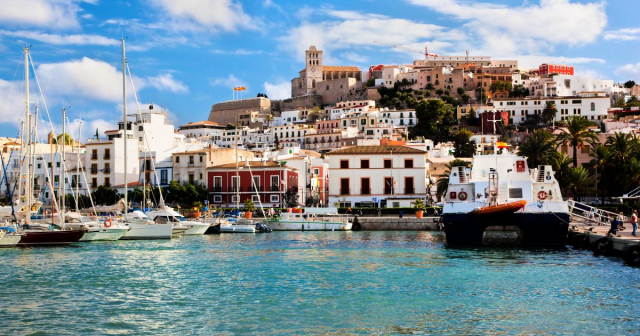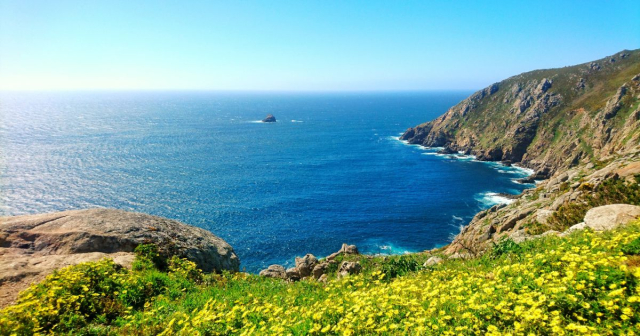Summer in Spain is a highly anticipated season that marks the arrival of high temperatures and outdoor activities. In 2025, summer will officially begin with the summer solstice and extend until September. During this time, beaches and tourist destinations fill with visitors looking to enjoy the warm weather. Heat waves are expected that could push temperatures above 30 degrees Celsius in many regions.
Definitions of Summer
To understand summer, it is crucial to differentiate between its various definitions. These are primarily astronomical and meteorological summer, each with specific characteristics and meanings in the Spanish context.
Astronomical Summer
The astronomical definition of summer is based on the Earth's motion around the sun. This period is determined by the summer solstice, a phenomenon that occurs between June 20 and 21, the longest day of the year.
Summer Solstice and Its Meaning
The summer solstice marks a key moment in the calendar , symbolizing the beginning of the summer season. This date, marked by the maximum northern declination of the sun, has been a cause for celebration in many cultures, reflecting the connection with nature.
Exact Time and Key Dates
In 2025, the summer solstice will occur on June 21st, at 10:51 p.m. This moment is significant not only from an astronomical perspective, but also from a cultural perspective, as it marks the beginning of various summer traditions.
Meteorological Summer
Unlike the astronomical definition, meteorological summer is based on more predictable weather patterns. This period extends from June 1 to August 31, facilitating the comparison and analysis of climate data.
Comparison with Astronomical Summer
Meteorological summer offers a more practical framework for meteorologists, as weather conditions are more homogeneous during these months compared to the variability of astronomical summer.
Importance for Meteorology
For meteorology professionals, segmenting summer into meteorological terms allows for more accurate forecasts. Temperature and precipitation statistics during these months are essential for agricultural planning and other economic activities.
Start of Summer in Spain 2025
The summer of 2025 in Spain begins under both astronomical and meteorological definitions that mark the arrival of this long-awaited season.
Date of the Summer Solstice
The summer solstice, a significant astronomical event, will occur on June 21, 2025. This day symbolizes the exact moment when the Sun reaches its maximum northern declination, offering the longest duration of sunlight of the year.
Peninsular Time and Circumstances
The official Spanish solstice time will be 11:58 PM, which means the days will become longer across Spain. This phenomenon is not only important from an astronomical perspective, but also influences Spaniards' daily activities and holiday planning.
National Astronomical Observatory
The National Astronomical Observatory is responsible for making precise calculations for these events. Its role is essential in disseminating information about the solstice and other relevant astronomical events to the public.
Date of Meteorological Summer
On the other hand, meteorological summer begins on June 1 and runs until August 31. This classification is based on the observation of weather patterns that identify seasonal characteristics during these months.
Duration and Seasonal Characteristics
During this period, temperatures in Spain are typically significantly high, reaching over 30 degrees in many regions, creating a favorable environment for outdoor activities and summer tourism. This time is ideal for enjoying beaches and cultural festivals.
Differences with Previous Years
Compared to previous years, the summer of 2025 is expected to present unique weather conditions. Temperatures could be more extreme, reflecting a pattern of climate change. These changes require constant monitoring of weather conditions to adapt to the new realities.
Impact of Summer on Daily Life
The arrival of summer significantly transforms the daily routine of Spaniards. During these months, recreational and social activities intensify, marking a period of enjoyment and freedom.
Popular Activities and Traditions
During the summer, cultural celebrations and activities come alive, becoming an essential aspect of daily life. These traditions help create a sense of community and belonging in the different regions of the country.
Festivals and Cultural Celebrations
Summer festivities are an integral part of Spanish culture. Among the most notable are:
- The April Fair in Seville, where music and dance take center stage.
- The San Fermín festival in Pamplona, known for its bull runs.
- The bonfires of San Juan, celebrating the arrival of summer with fire and joy.
Outdoor Activities
The warm climate invites you to enjoy the outdoors. Many people engage in:
- Go on excursions to the mountains or the countryside.
- Practice water sports on the country's numerous beaches.
- Attend open-air concerts and festivals held throughout Spain.
Most Visited Destinations
Summer in Spain is synonymous with tourism. Beaches and historic cities become favorite places to enjoy the sun and culture.
Domestic Tourism Preferences
Many choose to travel within the country, choosing charming towns and popular festivals. Destinations such as:
- Toledo, for its rich history and architecture.
- Granada, famous for the Alhambra and its vibrant atmosphere.
Coastal and Cultural Regions
The Mediterranean coast attracts thousands of tourists, highlighting places such as:
- Catalonia, where cities like Barcelona offer culture and beaches.
- Andalusia, with its warm climate and extensive beaches on the Costa del Sol.
- The Balearic Islands, an archipelago off the east coast of Spain in the Mediterranean. Destinations like Ibiza , Mallorca, and Menorca are a major draw during this time.

Climate Change and Heat Waves
The phenomenon of climate change is transforming seasonal temperatures in Spain. As temperatures rise, heat waves are becoming more frequent and severe, directly affecting various aspects of daily life.
Rising Temperatures
Climate projections point to a significant increase in temperatures in the coming years. The reality is that high temperatures have become a constant during the Spanish summer.
Temperature Forecasts for 2025
By the summer of 2025, temperatures are expected to reach record levels. Projections indicate highs between 38 and 42 degrees Celsius could be recorded in some regions, especially in the interior of the country.
Comparison with Previous Years
Compared to previous years, the increase in temperatures is evident. Over the last decade, a gradual increase has been observed, leading to earlier and more intense heat peaks. This impacts not only public health but also infrastructure and the population's daily activities.
Consequences for Agriculture and Economy
The impact of climate change is not limited to temperatures alone. Heat waves also have significant effects on the country's agriculture and economy.
Effects on Agricultural Production
High temperatures negatively affect crops, as water stress intensifies. This can lead to a decrease in the production of fruits and vegetables, which are essential to the Mediterranean diet and the local economy.
Influence on the Tourism Sector
Tourism is another sector that is impacted. While high temperatures may attract some visitors, lack of water and extreme weather conditions can deter others. This causes fluctuations in the tourism economy, creating uncertainties and challenges for coastal regions.
Importance of Astronomy and Meteorology
Astronomy and meteorology play a fundamental role in understanding the seasons, including the unique characteristics of summer in Spain. These disciplines allow us to predict climate changes and enjoy celestial phenomena.
Astronomical Observations in Summer
During the summer, the sky becomes a spectacle for astronomy lovers. The longer nights contribute to more intense stargazing and other celestial objects.
Skywatching Activities
- Amateur astronomy groups organize meetings in locations far from light pollution.
- Educational workshops are held to teach young people about constellations and astronomical phenomena.
- Meteor and eclipse observation events generate great interest among citizens.
Summer Astronomical Events
- The summer solstice, which symbolizes the longest day of the year, draws many observers outdoors.
- Astronomers point to other events such as meteor showers and planetary transits that enrich the summer experience.
Meteorological Relevance
Weather forecasts are essential for planning seasonal activities in the summer. Knowing weather trends allows people to adapt to climate variations and enjoy their leisure time.
Climate Predictions
- Predictions are made using meteorological models that allow us to anticipate heat waves.
- Extreme weather alerts are vital to ensuring the safety of citizens.
Planning Activities and Events
- Holidays and festivals are scheduled based on weather forecasts.
- Tourism is also influenced, with an increase in bookings during favorable weather seasons.
